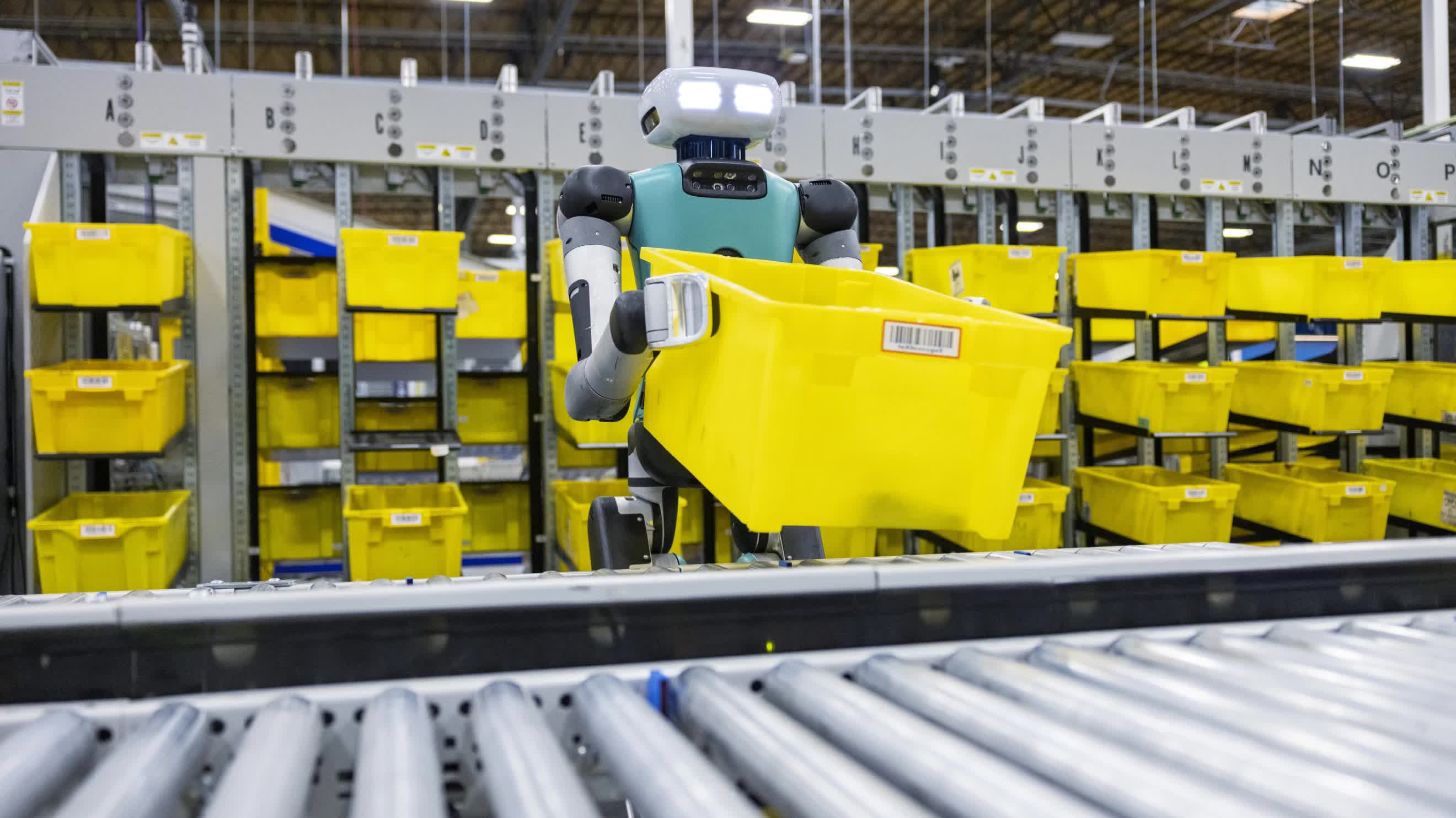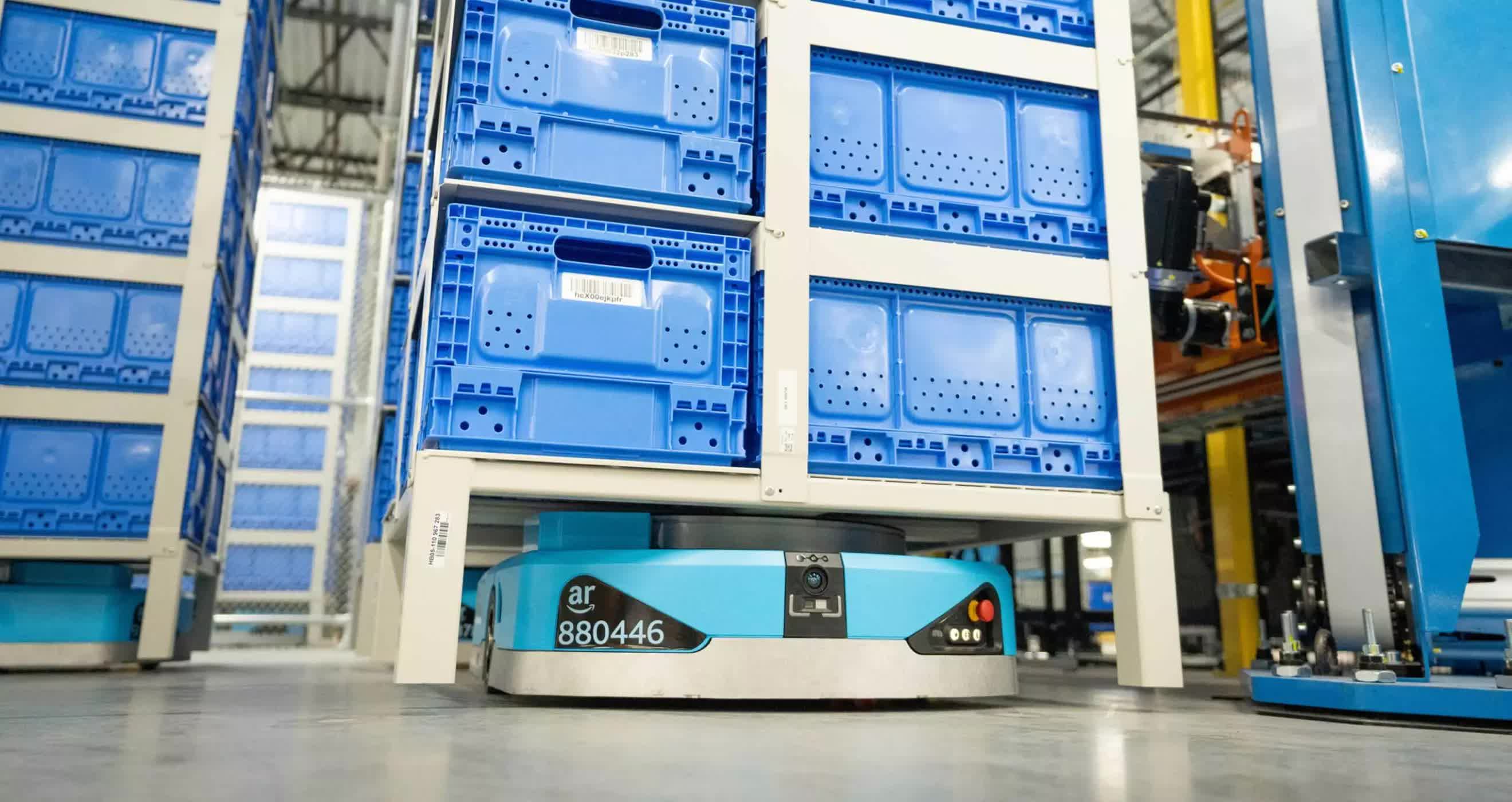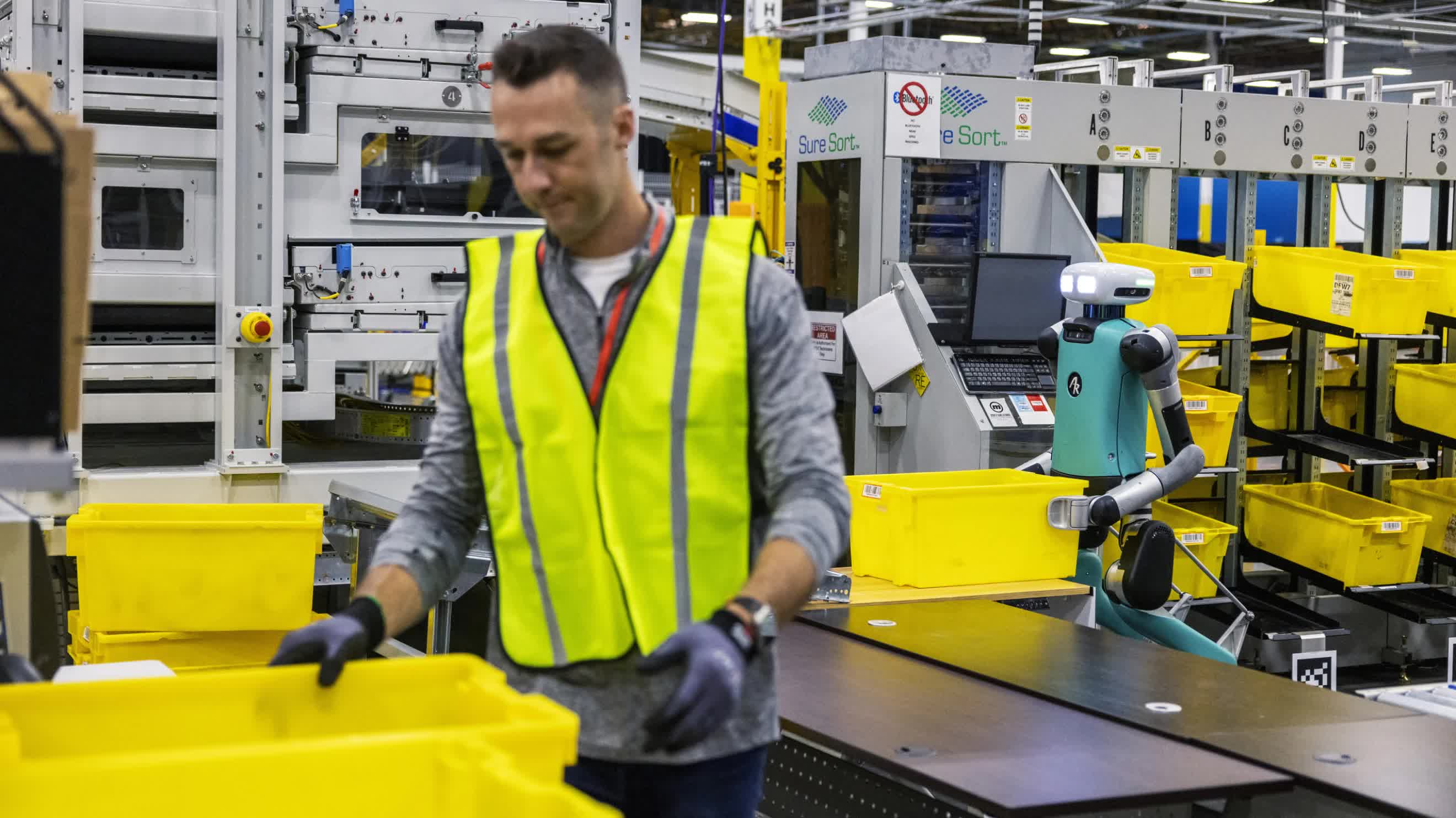What just happened? Amazon warehouse workers who fear the increasing amount of automation being introduced to the facilities now have two more technologies to worry about, including a humanoid robot that is being trialed. Amazon, of course, insists that the machines are there to decrease delivery times and improve workplace safety, working alongside humans as opposed to putting them out of a job.
Amazon writes that the first of these robots, Sequoia, is now operating at one of its fulfillment centers in Houston, Texas. Bearing an uncanny resemblance to a Roomba, the tech giant says the robot can identify and store inventory received at locations up to 75% faster. It also reduces order processing time by up to 25%.
What's likely to be more of a worry to Amazon warehouse workers is Digit, a 5-foot 9-inch 143-pound robot from Agility Robotics. The two-legged robot can walk forward, backward, and sideways, squat and bend, and move, grasp, and handle items using its arm/hand-like clasps. Its first job will be tote recycling, which Amazon says is a highly repetitive process of picking up and moving totes once they've been emptied of inventory.
Digit, lurking in the background, definitely not about to steal the human's job
Amazon is the second-largest employer in the US behind Walmart. It has a global workforce of almost 1.5 million, one million of whom are in its warehouses. The company has been introducing more technologies to automate human jobs for over ten years now, but it insists the aim is not to replace human workers but to take over monotonous tasks and improve safety.
Tye Brady, the chief technologist at Amazon Robotics, admitted that while the robots will make some warehouse jobs redundant, their deployment will create new ones; a line that is often used when talking about generative AI's threat to jobs. Amazon said that there is "a big opportunity to scale" the likes of Digit, which sounds like more concerning news for workers.
Brady added that those in Amazon's operations are "irreplaceable," and that eliminating mundane, repetitive tasks would not lead to job cuts and fewer staff. He also said that the prospect of a future Amazon warehouse that was fully automated without any human workers would never be a reality.
"People are so central to the fulfillment process; the ability to think at a higher level, the ability to diagnose problems," he said.
"We will always need people […] I've never been around an automated system that works 100% of the time. I don't think you have as well."
Amazon unveiled the AI-powered Sparrow in November last year, its first robot in the Amazon warehouse system able to detect items of different sizes, pick them up, and handle them without significant human intervention.
In June 2022, Amazon announced Proteus, a warehouse robot that, unlike its previous autonomous machines, operates without needing to be confined to a warehouse's restricted (I.e., caged off) areas. Its duties include lifting and moving GoCarts - the large, wheeled cages used to hold items - from one area of a facility to another.



